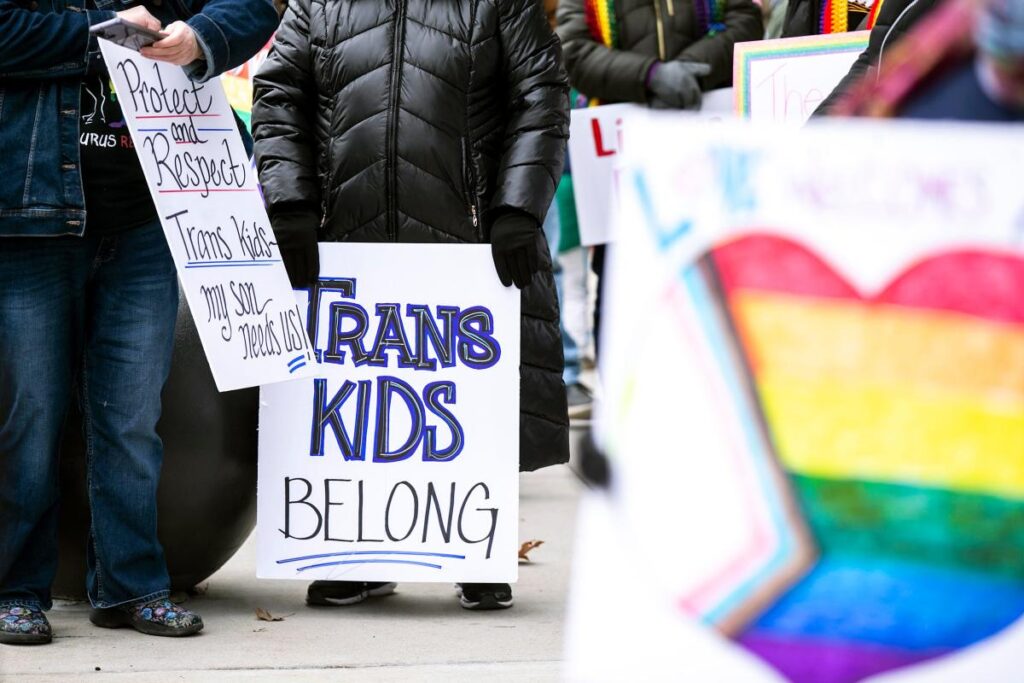The ongoing legal battle in New Jersey highlights rising tensions surrounding the rights of LGBTQ+ youth, particularly transgender students, against the backdrop of state-mandated policies and parental rights movements. The state Attorney General’s Office is set to confront several school boards in court over allegations that these districts have violated the New Jersey Law Against Discrimination by attempting to enact policies that would effectively “out” students to their parents. Key arguments are scheduled to be presented in a court hearing on November 19, following a previous ruling from a judge that halted the Hanover Township Public Schools from enforcing a controversial policy that diverged from established guidelines for supporting transgender students. The complexity of this issue draws attention not only to the specific circumstances of these districts but also to broader themes concerning the intersection of parental rights, student privacy, and the evolving understanding of gender identity in educational contexts.
The Hanover Township case served as an important touchpoint in a legal landscape where multiple school districts have challenged existing rules designed to protect the privacy of transgender students. In January, a temporary injunction was placed on the district’s plan which had the potential to compromise the autonomy of LGBTQ+ students to reveal their identities on their own terms. In addition, the state’s efforts have been bolstered by the attorney general’s lawsuits against three Monmouth County school districts—Manalapan-Englishtown, Marlboro, and Middletown—who altered their policies to demand parental notification about students’ gender identities. Collectively, these cases underscore a significant backlash against regulations aimed at protecting the rights and privacy of LGBTQ+ youth, as the push for parental involvement in such matters has intensified since 2020.
Attempts to undermine New Jersey’s Policy 5756, originally instituted during the tenure of Governor Chris Christie, reflect a grassroots “parental rights” movement that fundamentally opposes what they perceive as an encroachment on parental authority. Recent reports indicate that 18 school districts have repealed or amended this policy, which mandates that educators uphold students’ confidentiality regarding their gender identity. Supporters of this initiative argue that such legal changes jeopardize the safety and well-being of transgender students by making environments less inclusive and more hostile to their rights. Advocates like the ACLU-New Jersey emphasize that effective guidelines are necessary for educational institutions to ensure compliance with anti-discrimination laws and to protect students.
Opponents of the current supportive policies view them as an infringement on parental rights, alleging that school authorities are engaging in behavioral manipulation or “grooming” of students. This rhetoric is often laced with incendiary imagery and narratives that frame LGBTQ+ advocacy within schools as dangerous. For example, social media has perpetuated controversial comparisons between LGBTQ+ symbols and images associated with hate groups, further exacerbating the surrounding discourse. Figures involved in the New Jersey Project, a local group advocating for a return to parental controls, have employed divisive rhetoric to amplify fears among community members, thus rallying further opposition against norms that support LGBTQ+ youth.
The implications of repealing Policy 5756 are significant, with experts warning that such moves do not genuinely change the treatment of transgender students but rather complicate legal clarity for educators, inadvertently increasing the likelihood of discrimination claims. Legal perspectives maintain that all school districts in New Jersey are inherently obligated to comply with the Law Against Discrimination, irrespective of whether specific supportive policies are enacted. Nonetheless, the legal proceedings surrounding these cases could potentially ascend to the state Supreme Court. This trajectory would not only deepen the examination of transgender rights in New Jersey but could also set critical precedents with nationwide implications.
As this legal battle unfolds, government representatives reiterate the importance of both parental involvement and safeguarding student rights. New Jersey Attorney General Matthew Platkin has articulated a commitment to ensuring that parental rights are respected while simultaneously defending the critical protections for LGBTQ+ students. The forthcoming court hearing—while addressing the immediate tensions between school districts and state regulations—will undoubtedly reverberate through ongoing discussions surrounding equity, privacy, and the responsibilities of educational institutions in a rapidly evolving societal landscape. Ultimately, these cases resonate beyond individual districts, reflecting a broader cultural conversation about how society chooses to navigate the intersection of parental authority, student rights, and the evolution of understanding surrounding gender identity.

